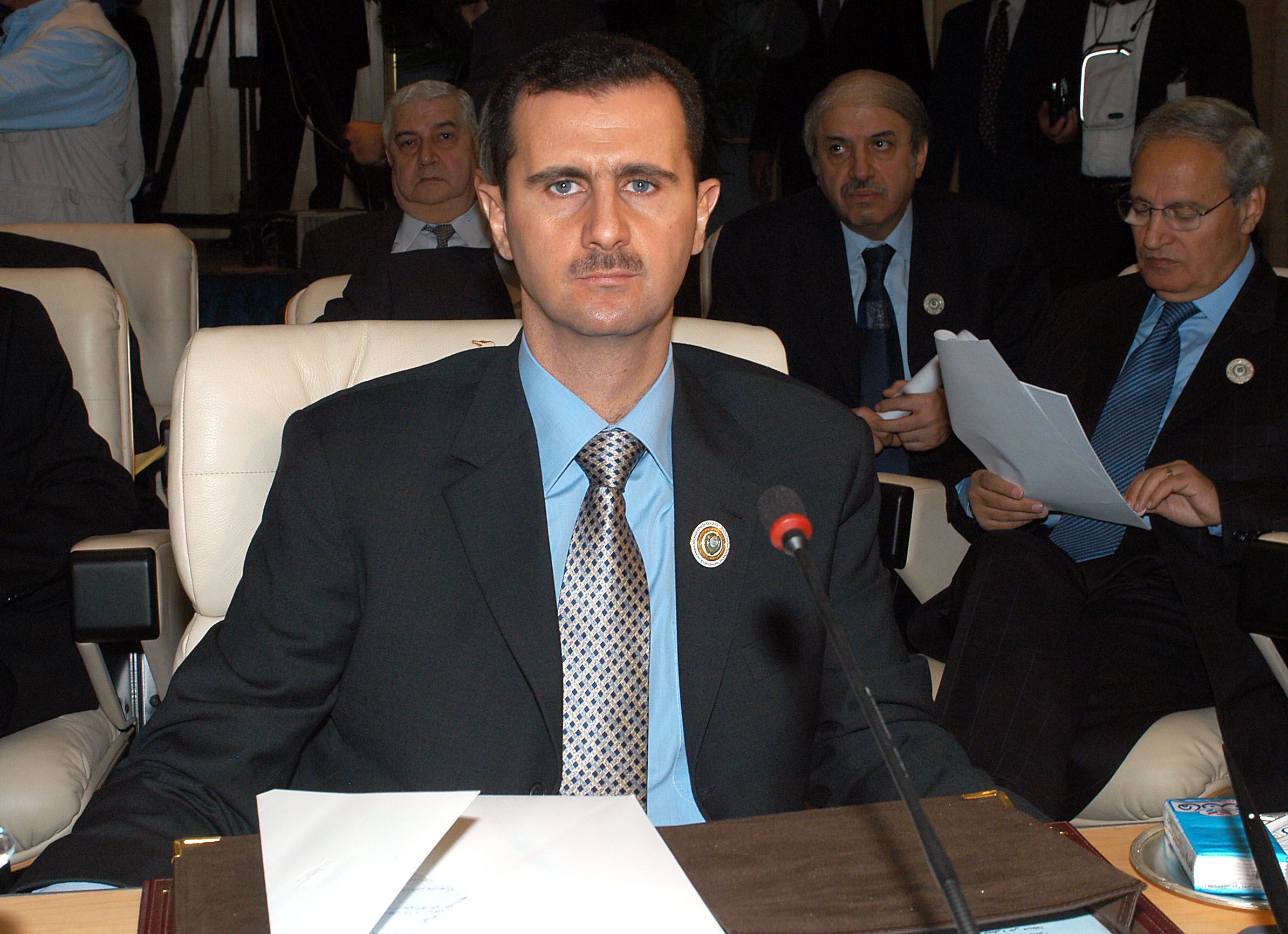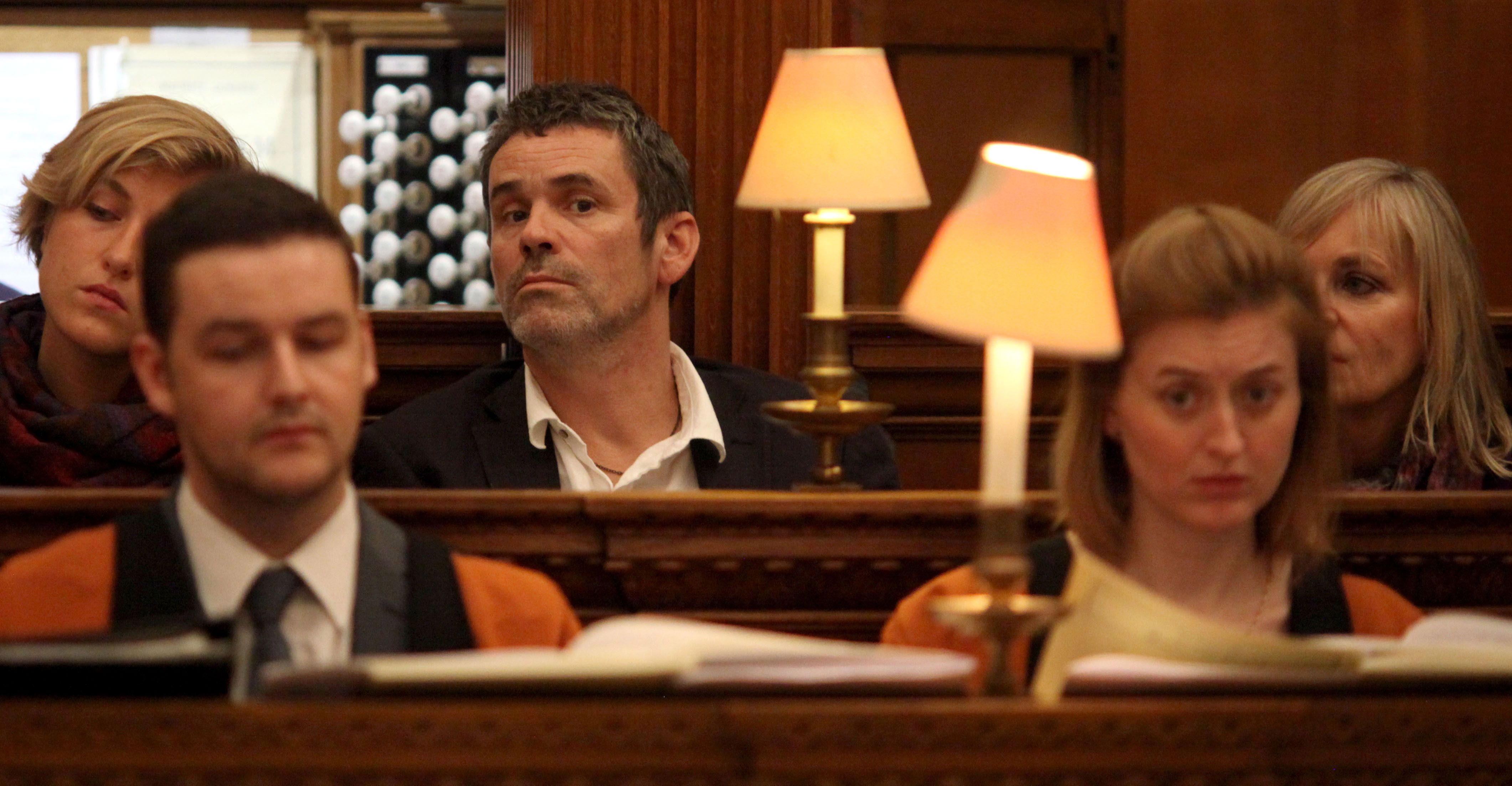

Share
1st February 2019
02:40pm GMT

 Syrian dictator President Bashar al-Assad (Credit: Salah Malkawi)[/caption]
Photojournalist Paul Conroy was reporting in Baba Amr alongside Colvin. When the daily shelling of the neighbourhood started on February 22, he immediately noticed something different. The former soldier from the Royal Artillery recognised "bracketing," a fire pattern that sees ordinance land either side of a target. It enables a spotter on the ground to then coordinate a direct impact.
A war cabinet convened by Bashar al-Assad himself planned the attack. It was implemented by Bashar's brother, Maher. Maher rewarded the key informant, who confirmed the location of Colvin and Conroy's media centre, with a new car. The site of the centre was initially traced after Colvin live broadcast to CNN, the BBC and Channel 4 using a satellite phone.
When news of Colvin's death broke senior military officials toasted her killing, a regime defector told the court. According to the defector, Major-General Shahadah said: "Marie Colvin was a dog and now she’s dead, let the Americans help her now."
An explosion instantly killed Colvin and French photographer Rémi Ochlik as they tried to flee the media centre. Conroy was injured.
[caption id="attachment_218213" align="alignnone" width="4242"]
Syrian dictator President Bashar al-Assad (Credit: Salah Malkawi)[/caption]
Photojournalist Paul Conroy was reporting in Baba Amr alongside Colvin. When the daily shelling of the neighbourhood started on February 22, he immediately noticed something different. The former soldier from the Royal Artillery recognised "bracketing," a fire pattern that sees ordinance land either side of a target. It enables a spotter on the ground to then coordinate a direct impact.
A war cabinet convened by Bashar al-Assad himself planned the attack. It was implemented by Bashar's brother, Maher. Maher rewarded the key informant, who confirmed the location of Colvin and Conroy's media centre, with a new car. The site of the centre was initially traced after Colvin live broadcast to CNN, the BBC and Channel 4 using a satellite phone.
When news of Colvin's death broke senior military officials toasted her killing, a regime defector told the court. According to the defector, Major-General Shahadah said: "Marie Colvin was a dog and now she’s dead, let the Americans help her now."
An explosion instantly killed Colvin and French photographer Rémi Ochlik as they tried to flee the media centre. Conroy was injured.
[caption id="attachment_218213" align="alignnone" width="4242"] Paul Conroy attends a service for journalists killed in conflict (Credit: Ben Gurr)[/caption]
The judge awarded punitive damages of $300 million to the estate of the American journalist, double the amount usually given for a victim of terrorism, because of the "unconscionable act" of killing Colvin for exposing barbarism.
Assad family assets have been frozen in the US and Britain for many years. Authorities can now go about seizing them to pay damages. Ruling Colvin's death as deliberate also allows for criminal proceedings to be undertaken.
Paul Conroy told JOE: "We got out once and we went back in. Why should we run, if they can't run?
"It was leading up to a huge slaughter and we thought if we can put the information out there we can stop that happening.
"We were hoping we could stop it that week. We didn't think we'd be here seven years later.
"Me and Marie had the discussion. The shelling had got so bad, so intense. It was a Tuesday everyone who had taken us in had started to be killed.
"We knew we're not going to file on Friday, we're not going to be here. Shall we do the broadcast? We've come all this way and if we get blown up in 10 minutes and we haven't filed, it's pointless.
"We made the conscious decision to do the broadcasts in the knowledge that bad things were going to happen, we were reporting live from the middle of a massacre. That's the last thing they want.
"It's official they did it. What I'm going to do next is going to consume me for a little while longer. I'm going to use this information.
"Marie was murdered, these people have been slaughtered by their own government. Now I actually have something I can stand up and wave at them. Boy, I am going to do that in such a big way."
A film about Marie's life, A Private War, is part of that campaign. It's released in the UK on February 15 - Conroy is credited as a consultant.
Judge Jackson said: "Officials at the highest level of the Syrian government carefully planned and executed the artillery assault on the Baba Amr media centre for the specific purpose of killing the journalists inside.
"Marie Colvin was a journalist who was killed by the Syrian government while reporting on the atrocities occurring during the civil war. She was specifically targeted because of her profession, for the purpose of silencing those reporting on the growing opposition movement in the country.
"A targeted murder of an American citizen whose courageous work was not only important but vital to our understanding of war zones and of wars generally is outrageous and therefore a punitive damages award that multiplies the impact on the responsible state is warranted."
The Colvin's lead counsel, Scott Gilmore, said the judgement was "a stunning rebuke to the Assad regime" and laid the foundation for indictments against the Assad regime. They would be the first indictments for war crimes to come out of the Syrian civil war.
Gilmore said Bashar al-Assad could be prosecuted under 'command responsibility,' a principle established at the Nuremberg trials.
Paul Conroy attends a service for journalists killed in conflict (Credit: Ben Gurr)[/caption]
The judge awarded punitive damages of $300 million to the estate of the American journalist, double the amount usually given for a victim of terrorism, because of the "unconscionable act" of killing Colvin for exposing barbarism.
Assad family assets have been frozen in the US and Britain for many years. Authorities can now go about seizing them to pay damages. Ruling Colvin's death as deliberate also allows for criminal proceedings to be undertaken.
Paul Conroy told JOE: "We got out once and we went back in. Why should we run, if they can't run?
"It was leading up to a huge slaughter and we thought if we can put the information out there we can stop that happening.
"We were hoping we could stop it that week. We didn't think we'd be here seven years later.
"Me and Marie had the discussion. The shelling had got so bad, so intense. It was a Tuesday everyone who had taken us in had started to be killed.
"We knew we're not going to file on Friday, we're not going to be here. Shall we do the broadcast? We've come all this way and if we get blown up in 10 minutes and we haven't filed, it's pointless.
"We made the conscious decision to do the broadcasts in the knowledge that bad things were going to happen, we were reporting live from the middle of a massacre. That's the last thing they want.
"It's official they did it. What I'm going to do next is going to consume me for a little while longer. I'm going to use this information.
"Marie was murdered, these people have been slaughtered by their own government. Now I actually have something I can stand up and wave at them. Boy, I am going to do that in such a big way."
A film about Marie's life, A Private War, is part of that campaign. It's released in the UK on February 15 - Conroy is credited as a consultant.
Judge Jackson said: "Officials at the highest level of the Syrian government carefully planned and executed the artillery assault on the Baba Amr media centre for the specific purpose of killing the journalists inside.
"Marie Colvin was a journalist who was killed by the Syrian government while reporting on the atrocities occurring during the civil war. She was specifically targeted because of her profession, for the purpose of silencing those reporting on the growing opposition movement in the country.
"A targeted murder of an American citizen whose courageous work was not only important but vital to our understanding of war zones and of wars generally is outrageous and therefore a punitive damages award that multiplies the impact on the responsible state is warranted."
The Colvin's lead counsel, Scott Gilmore, said the judgement was "a stunning rebuke to the Assad regime" and laid the foundation for indictments against the Assad regime. They would be the first indictments for war crimes to come out of the Syrian civil war.
Gilmore said Bashar al-Assad could be prosecuted under 'command responsibility,' a principle established at the Nuremberg trials.
Explore more on these topics: